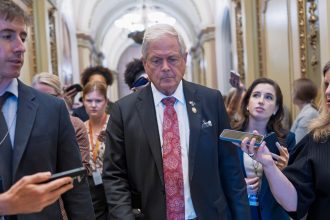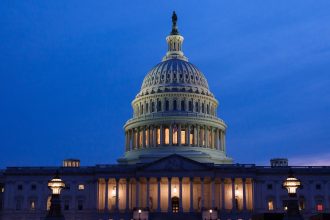The Supreme Court has entered the fray regarding state laws that prohibit transgender athletes from competing in girls’ and women’s sports, agreeing to hear cases from West Virginia and Idaho. This decision involves two transgender students: Becky Pepper-Jackson from West Virginia and Lindsay Hecox from Idaho, both of whom have contested their states’ prohibitions.
Both students received temporary injunctions allowing them to compete while their cases were being resolved. Fifteen-year-old Pepper-Jackson takes puberty-blocking medication, while 24-year-old Hecox has undergone testosterone suppression and estrogen treatments.
This move from the Supreme Court follows a recent ruling that upheld a Tennessee law limiting gender-affirming care for minors, which dealt a setback to transgender rights and left several legal questions unaddressed.
“Categorically excluding kids from school sports just because they are transgender will only make our schools less safe and more hurtful places for all youth,” stated Joshua Block, an attorney with the American Civil Liberties Union representing both students. “We believe the lower courts were right to block these discriminatory laws, and we will continue to defend the freedom of all kids to play.”
West Virginia Attorney General JB McCuskey expressed support for the Supreme Court’s involvement. “The people of West Virginia know that it’s unfair to let male athletes compete against women; that’s why we passed this commonsense law preserving women’s sports for women,” he remarked.
Oral arguments are anticipated later this year, with a ruling expected by June 2026. Both West Virginia and Idaho have implemented laws that outright ban transgender students from participating in women’s sports. Currently, over half of the states in the U.S. have similar prohibitions, though many are embroiled in legal challenges without clear resolutions.
The debate surrounding transgender rights has intensified nationally and was a significant topic in the most recent presidential election, where Donald Trump criticized Democrats for supporting efforts towards expanding these rights. Additionally, the Trump administration rolled back measures introduced by President Joe Biden aimed at enhancing protections for transgender individuals.
In February, the NCAA also reversed its policy, declaring that women’s sports are limited to “student-athletes assigned female at birth only.”
Initially, a federal judge ruled in favor of Pepper-Jackson, but in January 2023, the judge estimated the law’s likely legality and permitted its enforcement. Following an appeal, the 4th U.S. Circuit Court of Appeals intervened, halting state officials from enforcing the law against her. In April 2023, the Supreme Court denied West Virginia’s efforts to impose the law while litigation was ongoing, enabling Pepper-Jackson to continue competing in events like cross-country and track.
Hecox, who participates in soccer and running, similarly secured an injunction from a district court and won an appeal at the 9th U.S. Circuit Court of Appeals.
Court documents indicate that both students did not qualify for running teams at their respective institutions. However, Pepper-Jackson placed third in the middle school discus and sixth in shot put, competing against cisgender girls. She finished 67th out of 68 in an eighth-grade cross-country race.
The West Virginia law, enacted in 2021, asserts that gender is determined solely by reproductive biology and genetics at birth, defining a female as someone whose sex is established as female at birth. Similarly, the Idaho law from 2020 states that sports designated for females should not be open to students categorized as male.
The cases examine the potential violation of the 14th Amendment, which mandates equal legal protection, with Pepper-Jackson’s case also citing Title IX of the Education Amendments of 1972, which prohibits sex discrimination in education.
The Biden administration has proposed regulations clarifying Title IX’s application to transgender athletes, arguing that blanket bans would be unlawful, though some participation limitations could be acceptable. Conversely, the Trump administration issued an executive order aimed at excluding transgender women from women’s sports.
In a 2020 decision, the Supreme Court ruled that federal law prohibiting sex discrimination in employment also protects LGBTQ individuals, a ruling that provoked backlash among conservatives. The Court has yet to determine if this interpretation applies to Title IX as well.










